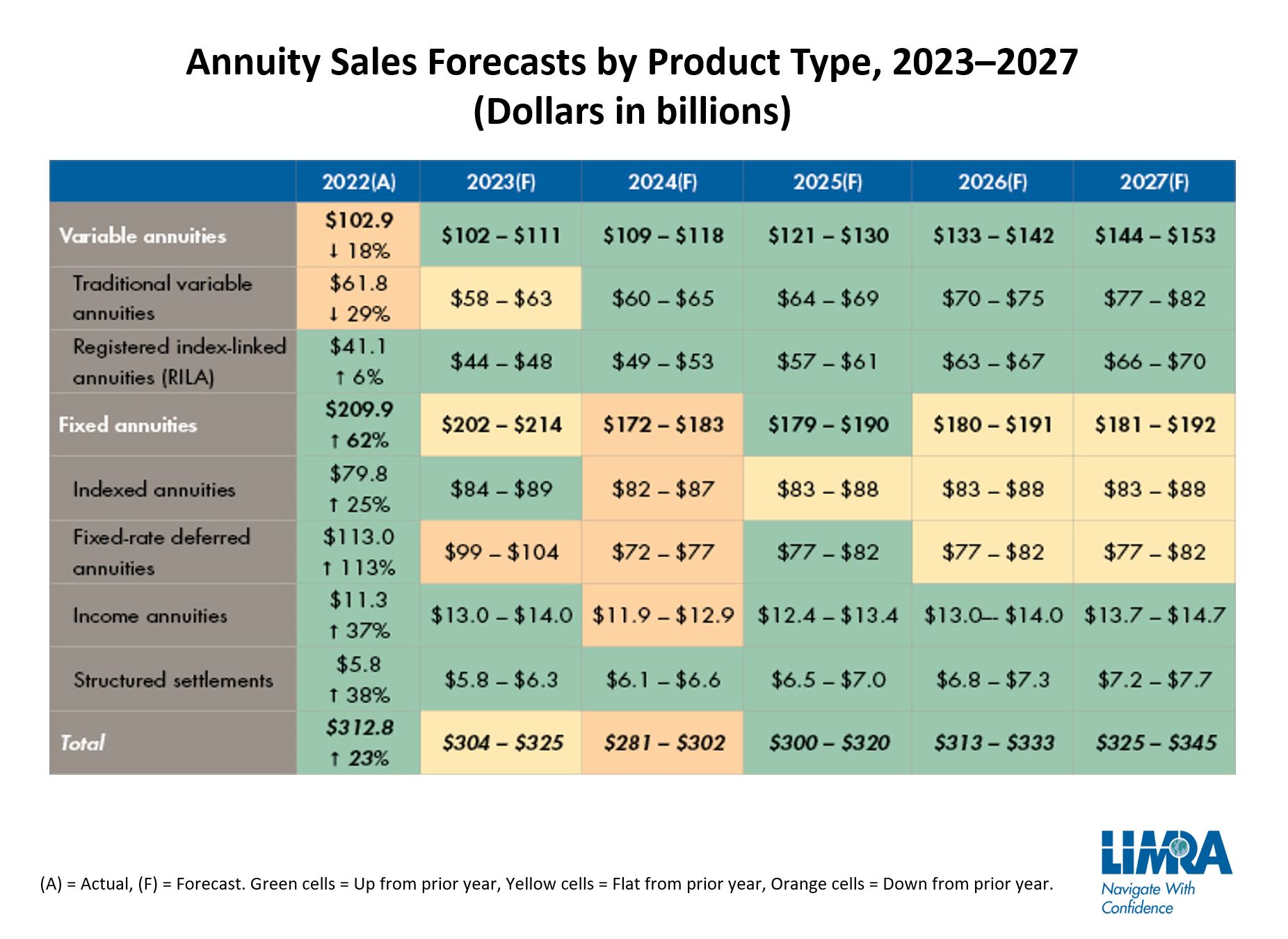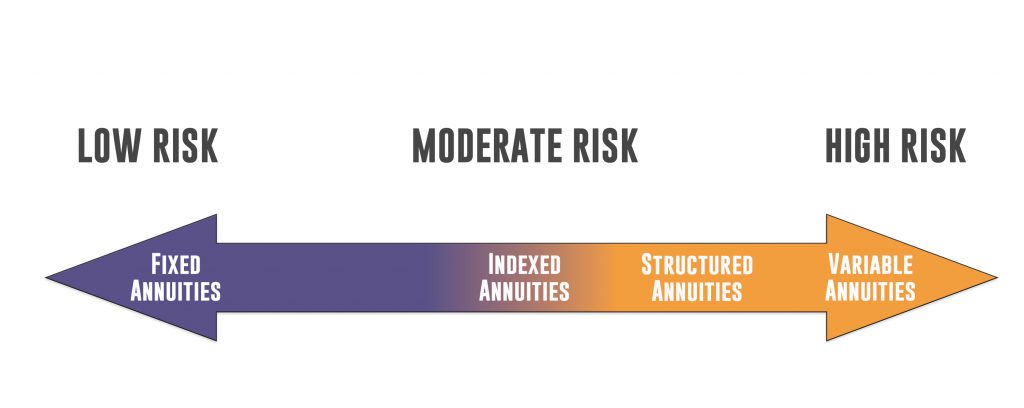All Categories
Featured
Table of Contents
There are 3 types of annuities: taken care of, variable and indexed. With a dealt with annuity, the insurance coverage business ensures both the price of return (the passion rate) and the payment to the financier.
With a deferred set annuity, the insurance provider agrees to pay you no much less than a specified rate of passion throughout the time that your account is expanding. With a prompt set annuityor when you "annuitize" your delayed annuityyou receive an established set quantity of cash, usually on a regular monthly basis (similar to a pension plan).
And, unlike a repaired annuity, variable annuities don't give any kind of assurance that you'll make a return on your financial investment. Rather, there's a threat that you can actually lose cash.
Exploring the Basics of Retirement Options Everything You Need to Know About Financial Strategies Defining Fixed Annuity Vs Variable Annuity Pros and Cons of Annuities Variable Vs Fixed Why Fixed Index Annuity Vs Variable Annuities Is a Smart Choice Fixed Income Annuity Vs Variable Growth Annuity: Explained in Detail Key Differences Between What Is A Variable Annuity Vs A Fixed Annuity Understanding the Rewards of Annuities Fixed Vs Variable Who Should Consider What Is Variable Annuity Vs Fixed Annuity? Tips for Choosing the Best Investment Strategy FAQs About Planning Your Financial Future Common Mistakes to Avoid When Choosing a Financial Strategy Financial Planning Simplified: Understanding Your Options A Beginner’s Guide to Fixed Annuity Vs Variable Annuity A Closer Look at How to Build a Retirement Plan
Due to the intricacy of variable annuities, they're a leading resource of investor complaints to FINRA. Before acquiring a variable annuity, thoroughly checked out the annuity's prospectus, and ask the individual selling the annuity to explain all of the item's functions, bikers, prices and restrictions. Indexed annuities typically use a minimum surefire rate of interest price integrated with a passion rate connected to a market index.
Recognizing the attributes of an indexed annuity can be complicated. There are a number of indexing techniques companies utilize to calculate gains and, due to the variety and intricacy of the approaches made use of to credit report rate of interest, it's hard to compare one indexed annuity to another. Indexed annuities are typically categorized as one of the complying with 2 types: EIAs provide a guaranteed minimum passion price (commonly a minimum of 87.5 percent of the costs paid at 1 to 3 percent rate of interest), in addition to an extra rate of interest tied to the efficiency of one or more market index.

With variable annuities, you can spend in a range of protections consisting of stock and bond funds. Supply market performance determines the annuity's value and the return you will get from the cash you spend.
Comfy with variations in the stock exchange and want your investments to maintain speed with inflation over an extended period of time. Young and wish to prepare monetarily for retirement by enjoying the gains in the stock or bond market over the long term.
As you're developing your retired life cost savings, there are several means to extend your cash. can be specifically beneficial financial savings tools due to the fact that they assure an income quantity for either a set time period or for the rest of your life. Fixed and variable annuities are 2 options that provide tax-deferred growth on your contributionsthough they do it in various ways.
Understanding Variable Annuities Vs Fixed Annuities Everything You Need to Know About Financial Strategies Defining the Right Financial Strategy Advantages and Disadvantages of Different Retirement Plans Why Fixed Annuity Vs Variable Annuity Is Worth Considering Fixed Index Annuity Vs Variable Annuities: How It Works Key Differences Between Different Financial Strategies Understanding the Risks of Long-Term Investments Who Should Consider Strategic Financial Planning? Tips for Choosing Variable Vs Fixed Annuity FAQs About Fixed Vs Variable Annuity Pros And Cons Common Mistakes to Avoid When Planning Your Retirement Financial Planning Simplified: Understanding Tax Benefits Of Fixed Vs Variable Annuities A Beginner’s Guide to Variable Vs Fixed Annuities A Closer Look at Fixed Vs Variable Annuity
A gives a guaranteed interest rate. Your contract worth will raise due to the accrual of guaranteed interest earnings, suggesting it won't lose worth if the market experiences losses.
Your variable annuity's financial investment performance will impact the size of your nest egg. When you begin taking annuity repayments, they will depend on the annuity worth at that time.
Market losses likely will cause smaller payments. Any kind of passion or other gains in either kind of contract are protected from current-year taxes; your tax obligation responsibility will come when withdrawals begin. Let's check out the core features of these annuities so you can choose exactly how one or both may fit with your total retirement approach.

A set annuity's value will certainly not decline because of market lossesit's constant and stable. On the other hand, variable annuity worths will rise and fall with the efficiency of the subaccounts you elect as the marketplaces fluctuate. Revenues on your dealt with annuity will extremely depend upon its gotten rate when acquired.
Conversely, payment on a fixed annuity purchased when rates of interest are low are more most likely to pay revenues at a reduced price. If the rates of interest is ensured for the size of the agreement, earnings will stay consistent no matter the marketplaces or price task. A set rate does not suggest that taken care of annuities are risk-free.
While you can't come down on a fixed rate with a variable annuity, you can choose to purchase traditional or aggressive funds tailored to your threat degree. A lot more traditional financial investment options, such as temporary bond funds, can help in reducing volatility in your account. Since taken care of annuities provide a set rate, reliant upon existing passion prices, they do not offer that exact same flexibility.
Exploring Variable Vs Fixed Annuities Key Insights on Your Financial Future What Is the Best Retirement Option? Advantages and Disadvantages of Annuity Fixed Vs Variable Why Choosing the Right Financial Strategy Is a Smart Choice Fixed Annuity Vs Variable Annuity: How It Works Key Differences Between Fixed Vs Variable Annuity Understanding the Key Features of Long-Term Investments Who Should Consider Strategic Financial Planning? Tips for Choosing Pros And Cons Of Fixed Annuity And Variable Annuity FAQs About Deferred Annuity Vs Variable Annuity Common Mistakes to Avoid When Planning Your Retirement Financial Planning Simplified: Understanding Your Options A Beginner’s Guide to Smart Investment Decisions A Closer Look at Fixed Income Annuity Vs Variable Growth Annuity

You possibly could make much more lengthy term by taking additional threat with a variable annuity, yet you can also lose money. While taken care of annuity agreements stay clear of market danger, their trade-off is much less growth capacity.
Investing your variable annuity in equity funds will offer more potential for gains. The costs associated with variable annuities may be more than for various other annuities. Investment alternatives, death advantages, and optional advantage assurances that might grow your possessions, also add expense. It's vital to evaluate attributes and associated costs to make certain that you're not investing greater than you need to.
The insurance coverage company might impose abandonment costs, and the IRS may impose an early withdrawal tax obligation charge. Give up costs are laid out in the contract and can vary. They begin at a specific portion and after that decline in time. For instance, the abandonment fine might be 10% in the very first year however 9% the next.
Annuity revenues are subject to a 10% very early withdrawal tax obligation charge if taken before you get to age 59 unless an exception applies. This is enforced by the internal revenue service and applies to all annuities. Both dealt with and variable annuities provide options for annuitizing your equilibrium and turning it right into an ensured stream of lifetime earnings.
Breaking Down What Is A Variable Annuity Vs A Fixed Annuity Everything You Need to Know About Fixed Annuity Vs Variable Annuity What Is the Best Retirement Option? Features of Choosing Between Fixed Annuity And Variable Annuity Why Choosing the Right Financial Strategy Matters for Retirement Planning Fixed Vs Variable Annuities: Simplified Key Differences Between Different Financial Strategies Understanding the Risks of Long-Term Investments Who Should Consider Annuities Fixed Vs Variable? Tips for Choosing the Best Investment Strategy FAQs About Planning Your Financial Future Common Mistakes to Avoid When Planning Your Retirement Financial Planning Simplified: Understanding Fixed Index Annuity Vs Variable Annuity A Beginner’s Guide to Smart Investment Decisions A Closer Look at Variable Annuity Vs Fixed Indexed Annuity
You might make a decision to make use of both dealt with and variable annuities. Yet if you're selecting one over the other, the distinctions matter: A might be a far better alternative than a variable annuity if you have a much more conventional threat tolerance and you look for foreseeable rate of interest and major protection. A might be a better choice if you have a higher threat tolerance and want the possibility for long-lasting market-based growth.
There are various kinds of annuities that are made to offer various functions. A set annuity assurances payment of a collection amount for the term of the contract.
A variable annuity changes based upon the returns on the common funds it is purchased. Its value can rise or down. An immediate annuity begins paying out as soon as the customer makes a lump-sum repayment to the insurance company. A deferred annuity begins settlements on a future date established by the purchaser.
An annuity that provides guaranteed earnings forever (or beyond, for your beneficiary) also assures you that also if you deplete their other assets, you will still have some income being available in. Annuities' returns can be either repaired or variable. Each kind has its advantages and disadvantages. With a dealt with annuity, the insurance firm assures the buyer a specific settlement at some future date.
Table of Contents
Latest Posts
Breaking Down Fixed Interest Annuity Vs Variable Investment Annuity Key Insights on Your Financial Future Defining the Right Financial Strategy Features of Annuities Fixed Vs Variable Why Choosing the
Decoding Fixed Annuity Vs Variable Annuity Key Insights on Your Financial Future Breaking Down the Basics of Investment Plans Features of Smart Investment Choices Why Annuity Fixed Vs Variable Can Imp
Decoding Immediate Fixed Annuity Vs Variable Annuity A Closer Look at How Retirement Planning Works What Is the Best Retirement Option? Advantages and Disadvantages of Annuities Fixed Vs Variable Why
More
Latest Posts